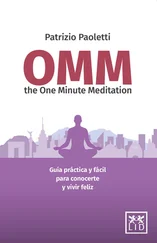I had been nursing the coffee and now decided there was no point in waiting longer so I raised the cup to my mouth and in so doing caught the gaze of a young man, perhaps in his late twenties or early thirties, sitting at a table across from me. I cannot say how long he had been sitting there, whether he had already been present when I walked in or if he had arrived after me, but he nodded or perhaps did not nod but made some acknowledgment or greeting and then began speaking in a way so casually familiar that I was taken off guard. This is not something that tends to happen in Britain, where suspicion of strangers is so deeply ingrained in the national psyche, perhaps from the years of the IRA threat, or even more distantly, from the suspicion of German spies during the Second World War, that strangers often do not even make eye contact let alone speak with one another, unless they are from elsewhere, and then, by happy chance, it becomes possible to bond with someone in a public place, both shaking your heads over the confounding maze of London’s transportation network or the cost of living or the difficulty inherent in walking down the street because whatever laws of left-side walking that might once have been in force have been confused by London’s transformation into an international microstate, and though distant enough from the capital, Oxford is a satellite of this phenomenon, its Englishness gradually giving way to a cosmopolitanism that moves with brutal transformative force. Perhaps the day will soon come when strangers in Britain talk to each other in ways that will feel normal rather than extraordinary.
But here, in New York, on a cold day in November, there was a stranger engaging me in conversation, and because of my habituation to an English attitude of reticence it seemed so astonishing that at first I did not believe he could possibly be speaking to me.
‘Stood up?’
I did a double take, looking round the room. ‘You talking to me?’
‘ You talking to me? That’s funny,’ he laughed, ‘like De Niro, right? You talkin’ to me? ’
‘Yeah, I suppose so.’
‘So? Stood up?’
‘No. It’s not like that. I was waiting for a student.’
‘Male or female?’
Again, I surveyed the room. The café was not very full and there was something sufficiently strange in the young man’s tone that I was unsure whether it was safe to continue the conversation and thought of ending it right there by excusing myself. If I had any common sense remaining, that is precisely what I should have done, given what has come to pass, but clearly, in retrospect, I had taken leave of my senses, or perhaps, I think now, taken leave of my British senses and allowed the American ones to seize control.
‘Female.’
‘Pretty?’
Once more I looked around, this time to be sure there was no one I knew within earshot.
‘Excuse me?’
‘That means no. You sound British.’
‘I lived there for more than a decade. To the British I always sounded American.’
‘Well, you sound British to me. Anyone else tell you that?’
‘A number of people. Americans tend not to have a good ear. They think that British actor, what’s his name, who plays a doctor on TV, they think he does a faultless American accent. He doesn’t. It sounds like an accent that was cooked up in a laboratory rather than grown from seed, as it were.’
‘See, that’s what I mean. Americans would never say as it were . You totally sound British. That’s awesome.’
‘Thank you, I guess.’
‘So she’s not pretty, the student who stood you up?’
‘She’s attractive enough, but that’s not the point. She’s an excellent student.’
‘But a flake.’
‘No, not a flake. It’s just not like her.’
‘Then call her.’
‘I don’t have her number. Thought I did. .’
‘Senior moment?’
‘Listen, I’m not that old.’
‘You could be my granddad.’
‘I’m not even fifty-five.’
‘Okay, calm down, I’m just messing with you. What do you teach?’
‘Modern History and Politics, and a senior seminar on Film.’
‘Cool.’
‘Are you a student?’
‘Nope. Not anymore.’
‘You know what I do. Don’t you want to tell me what you do?’
‘Just another corporate shill.’
And that, as far as I remember it, was the end of the conversation. He struck me as not much younger or older than my daughter, with sandy hair and a pale complexion that made him look like a corn-fed Midwesterner, the kind of face that hosts the slightly haunted-looking eyes of poverty from a few generations back — not his parents or grandparents necessarily, but one or more of the great-grandparents, I suspected, had not eaten well for much of his or her life and somehow that hunger had taken hold of their genes and been passed down to the kid who struck up a conversation with me in an Italian café in Greenwich Village at the end of last month. It was a face that reminded me of the portraits by Mike Disfarmer, those sepia photographs of ordinary Arkansas folk, too tanned, most of them lean and a little hungry or hunted looking, as though in hunting to put meat on the table they had at some moment in the chase realized they were themselves being tracked by an unseen predator.
The meeting was not in itself unsettling, although this young man was the sort of person who left me glancing over my shoulder as I walked back to my building in the afternoon dark, and then as I stood in the lighted window overlooking Houston Street — or, rather, staring at my own reflection as I was thinking about the passing traffic outside — it occurred to me just how visible I was, only a few floors up from street level, the blinds open and me standing there, listening to Miles Davis and drinking a glass of scotch because it was, after all, already half past five in the afternoon and it was November and dark and I felt alone, in fact quite lonely, and realizing that the reason I had not ended the conversation immediately, even when it took its stranger turns, was because I had not yet managed to reconnect with my old friends in this city, had in fact allowed those friendships to slide during my years in Oxford, so that now I no longer feel able to phone up the people who were once my intimates and ask them if we could meet for a coffee as easily as I proposed such meetings with my students, female or not, pretty or otherwise. I decided I should invite a small group of colleagues for dinner, then remembered the reason I was feeling unsettled in the first place, and the fact that I had briefly forgotten why I was unsettled compounded my sense of unease. I opened my laptop and there, right at the top of the sent messages in my email, was a message to Rachel that I had apparently written that afternoon, at just past 2pm, so only a few hours earlier, in which I asked her if we might reschedule our meeting until Monday at 4pm in my office because another commitment had unexpectedly arisen and I could not, I was terribly sorry, find a way to get out of it, and would she please forgive me. And there was her reply, which I had apparently read, assuring me it was no problem whatsoever and Monday at 4pm in my office suited her perfectly.
Now, I had no memory of writing the message, or of having read her reply, and while it is true that I was having my first drink before 6pm, it was definitely my first of the day. Moreover, I had not had a drink all week, though one might think that because I have to mention such a thing perhaps I have had a problem in the past, which is not the case either, unlike a great many of my former colleagues at Oxford, a majority of whom I would guess were functional — and some not remotely functional — alcoholics of the kind not readily tolerated in American academe. The point being: I had not blacked out, had not forgotten this exchange with Rachel because of alcoholism, although it would have been reassuring if I had completely blanked out the episode because of something external to my own mind and not because of a black hole in my memory. It may be a point of regret but in those moments in my newly re-Americanized life when I feel suddenly ill at ease or simply lonelier than any contact with students and colleagues can remedy, I phone my daughter, and this is what I did on that Saturday a few weeks ago. I turned down Miles Davis and picked up the phone and asked Meredith how she and Peter were doing.
Читать дальше












